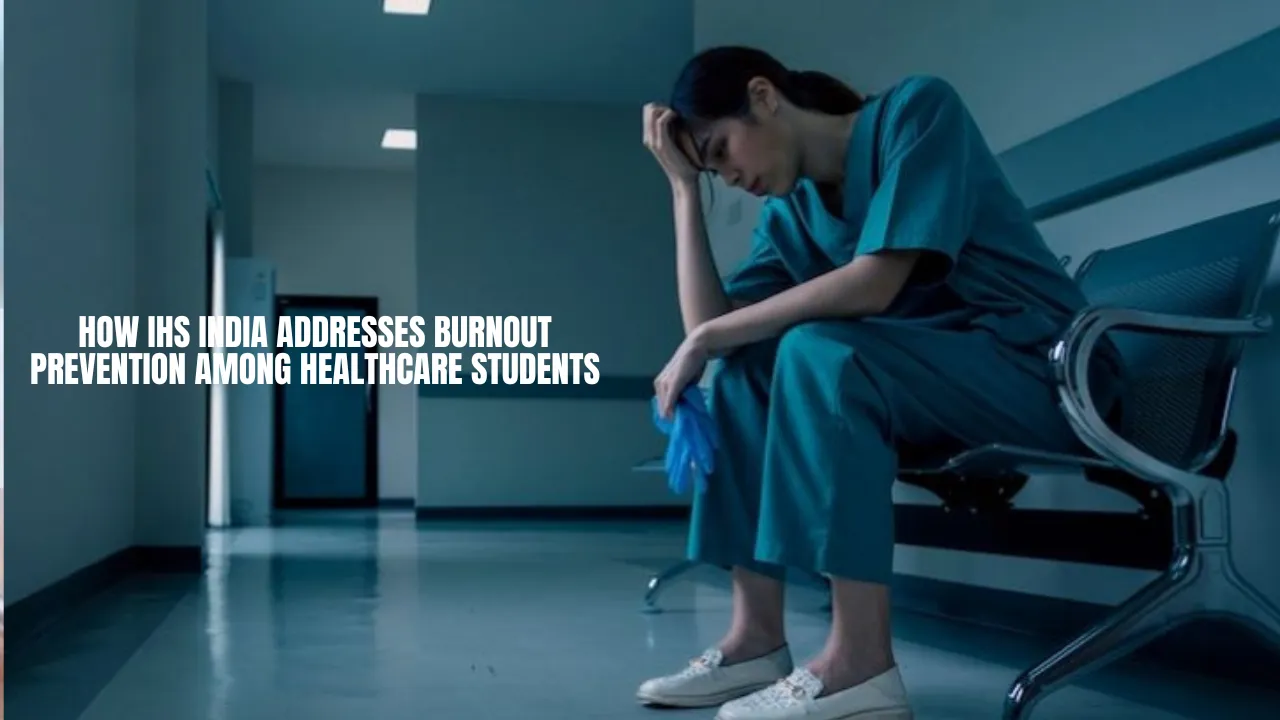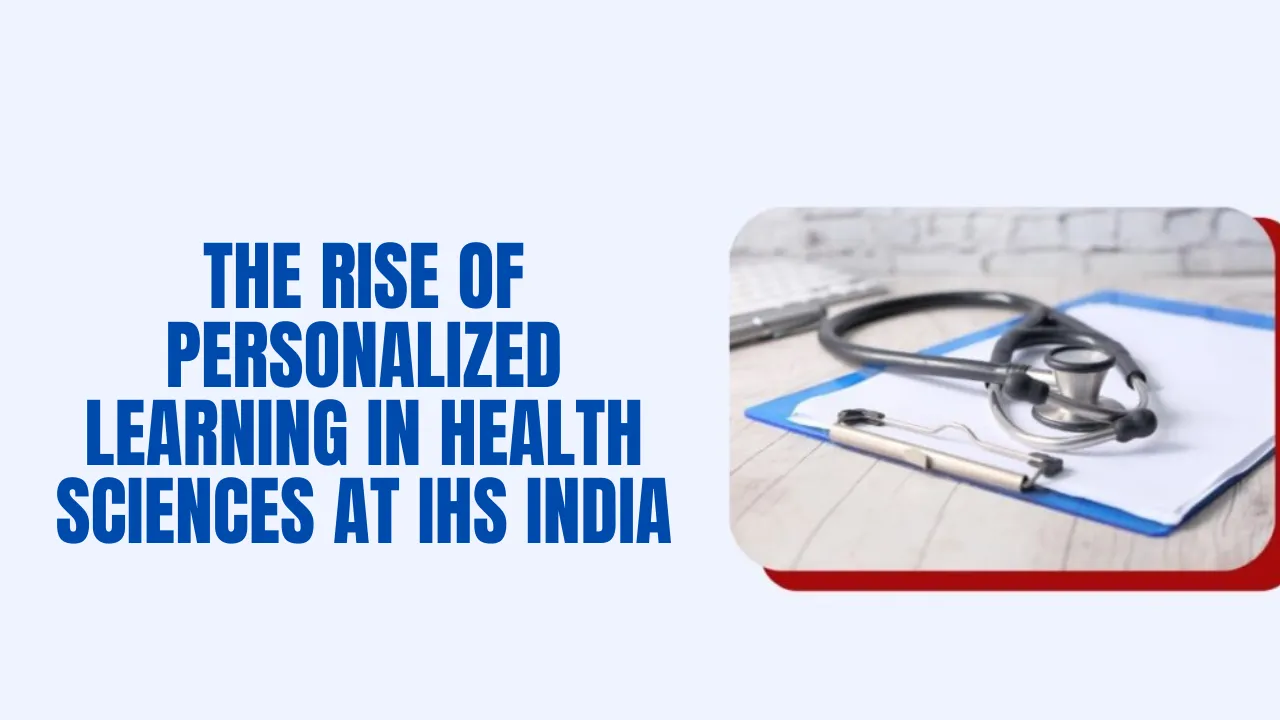Burnout prevention among healthcare students is a critical issue that continues to gain attention in academic and clinical settings. As the healthcare industry grows more demanding, students training to join this field are under immense pressure. From grueling academic workloads and practical training to emotional exposure in clinical environments, these students face unique challenges that often go unnoticed.
This article looks at how IHS India is actively addressing this challenge through tailored programs aimed at enhancing mental wellness. Focusing on resilience-building, mindfulness, and structured self-care, IHS India offers a holistic approach that not only supports student success but also fosters long-term emotional stability. You’ll discover how these innovative practices are creating positive shifts in the culture of healthcare education in India.
Burnout Prevention Among Healthcare Students
At the heart of the issue lies a growing need to support the psychological health of students in healthcare courses. Burnout prevention among healthcare students isn’t just about reducing stress—it’s about creating a strong foundation for future healthcare workers. IHS India recognizes that healthcare students face unique psychological challenges: high academic pressure, emotionally charged clinical duties, and limited personal time. Their approach integrates mindfulness in healthcare, emotional support systems, and resilience training into everyday learning experiences, giving students the tools to care for themselves as they care for others.
Overview of IHS India’s Approach to Student Mental Wellness:
| Area of Focus | Description |
| Resilience Training | Workshops and skill-building activities that prepare students for setbacks |
| Mindfulness Practices | Daily and weekly mindfulness exercises to reduce stress and increase focus |
| Self-Care Education | Modules covering sleep, diet, exercise, and emotional health |
| Peer Support Systems | Group check-ins, support circles, and peer mentorship |
| Faculty Mentoring Programs | Emotional and academic guidance from trained educators |
| Mental Health Counseling | Access to confidential psychological support |
Mental Resilience Training Builds Inner Strength
Resilience is not a personality trait; it’s a skill that can be taught. IHS India invests in resilience building for students through structured workshops and group exercises. These are designed to help students bounce back from setbacks—whether it’s a failed exam, a difficult clinical encounter, or general overwhelm.
Students are encouraged to reframe negative experiences and develop cognitive flexibility. The emphasis is on building adaptive coping mechanisms that can be applied in both personal and professional situations. This kind of resilience isn’t just helpful for surviving school—it’s essential for navigating the unpredictable and emotionally demanding world of healthcare.
Mindfulness Techniques Reduce Stress
Mindfulness in healthcare education is more than a trend at IHS India. It’s part of the curriculum. Daily mindfulness exercises, such as guided breathing or silent reflection, are introduced in group settings or individual modules. These techniques help students stay grounded during high-stress periods, like exams or clinical placements.
Mindfulness reduces impulsivity, lowers anxiety, and sharpens focus. Students who engage regularly report better emotional control and a deeper sense of clarity. By making mindfulness accessible and relevant, IHS India normalizes its practice across academic life, making it a core tool for healthcare student stress management.
Self-Care Modules Encourage Healthy Habits
Many students ignore personal wellness until it becomes a serious issue. IHS India actively fights this pattern by embedding student self-care strategies into its programs. These modules cover vital areas such as time management, sleep hygiene, physical activity, and emotional boundary setting.
What makes this approach different is its action-oriented structure. Students are asked to set weekly self-care goals, reflect on their progress, and share outcomes in small groups. This habit-forming process reinforces consistency. Over time, students learn that maintaining wellness isn’t a luxury—it’s a professional responsibility.
Supportive Peer Environment
Healthcare education can be lonely, especially when students feel they can’t show vulnerability. That’s why IHS India promotes emotional support in medical training through peer engagement. The peer support network includes small discussion groups, open forums, and student-led mental wellness events.
This setup helps normalize stress-related conversations. Students support each other by sharing coping methods, offering validation, and checking in regularly. These systems reduce isolation and encourage accountability. By fostering this culture early, IHS is helping students build habits that translate to better teamwork and communication in their future careers.
Faculty Training and Mentorship
Faculty play a powerful role in burnout prevention among healthcare students. At IHS India, faculty undergo special training to recognize emotional distress, avoid high-pressure teaching methods, and engage with students more empathetically.
Mentorship is central to the program. Every student is paired with a faculty mentor who offers academic and personal guidance. These relationships help build trust and give students a reliable point of contact when they need support. It also ensures that early signs of burnout don’t go unnoticed.
Two Key Strategies Used by IHS India:
1. Mindfulness and Meditation Modules:
- Short daily breathing sessions to center focus
- End-of-week group reflections
- Guided meditations linked to academic topics
2. Self-Care Action Plans for Students:
- Structured goal-setting for wellness habits
- Weekly tracking journals
- One-on-one check-ins with wellness coaches
Regular Mental Health Check-Ins
To track student well-being proactively, IHS India has introduced regular mental health assessments. These include digital surveys, personal wellness evaluations, and optional in-person counseling sessions.
The system is designed for early intervention. If a student shows signs of distress, the wellness team reaches out with support options, including referrals to professionals. This data-driven, student-centered model helps prevent crises before they escalate and promotes open discussions about student mental health programs.
FAQs:
What causes burnout among healthcare students?
High academic pressure, emotional stress from clinical duties, and lack of time for self-care are major contributors.
How does mindfulness help in preventing burnout?
Mindfulness increases awareness, helps regulate emotions, and reduces anxiety, allowing students to respond better to stress.
Are IHS India’s burnout prevention programs mandatory?
While some modules are integrated into the curriculum, students are encouraged to participate in all wellness initiatives.
Is professional mental health support available at IHS India?
Yes, students have access to qualified mental health counselors and can schedule private sessions.
How often are mental health check-ins done?
Students are invited to complete wellness surveys and check-ins at regular intervals throughout the semester.
Final Thought:
The journey to becoming a healthcare professional is tough—but it doesn’t have to be overwhelming. Burnout prevention among healthcare students is not just about surviving the process; it’s about thriving through it with the right support, tools, and mindset. IHS India’s comprehensive wellness framework proves that educational excellence and mental wellness can—and must—go hand in hand.
By normalizing emotional care, promoting mindfulness, and embedding self-care into education, IHS India is creating a sustainable model for future healthcare leaders. If you’re part of the medical education journey or simply care about it, now’s the time to embrace a culture where mental health is as important as academic achievement.
Let us know what you think in the comments, and explore more content on student wellness and mental health tools designed for the next generation of healthcare heroes.







